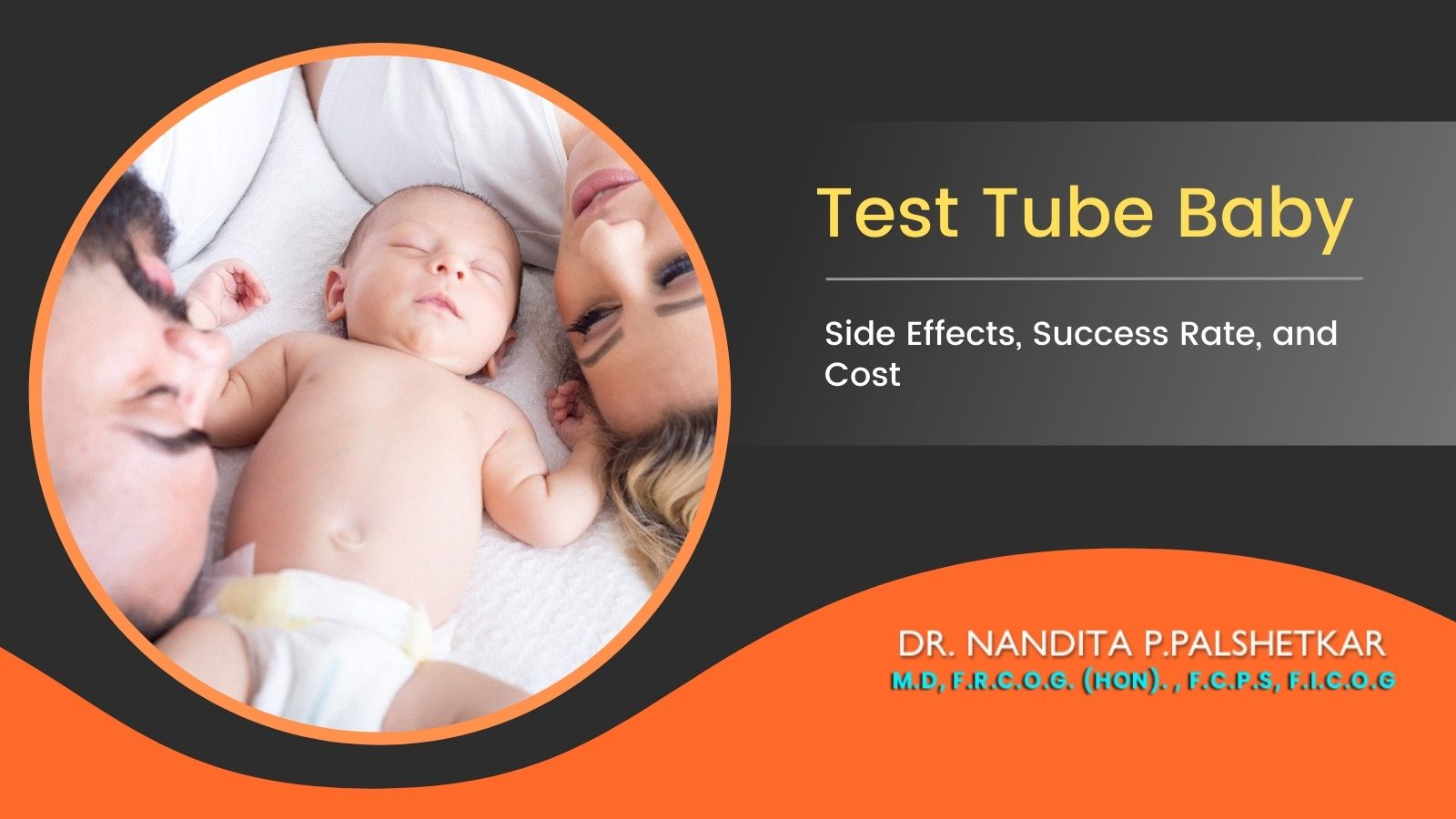

E-Brochure Download Now!

For many couples, the journey to parenthood isn’t as straightforward as they hoped. After months, sometimes years, of trying to conceive, the option of IVF—often called the test tube baby process—becomes a lifeline. But with hope comes uncertainty: What’s the success rate? What side effects should you expect? And, most importantly, how much will it cost? In India, IVF has gained popularity, with thousands of couples turning to assisted reproduction every year. This blog will answer all these questions, providing clarity on the costs, success rates, and potential side effects of IVF.
A test tube baby is a child conceived through in vitro fertilisation (IVF). Unlike natural conception, IVF involves fertilising an egg with sperm outside the body in a lab. The process begins with ovarian stimulation to produce multiple eggs, followed by egg retrieval. These eggs are fertilised in the lab, and the resulting embryos are monitored for quality before being transferred into the woman's uterus. If successful, the embryo implants and the woman carries the pregnancy to term. Despite the different conception methods, IVF babies are just as healthy as those conceived naturally.
While the test tube baby process has helped millions of couples conceive, like many medical procedures, it has some risks and potential side effects. These may include:
It may be triggered by the ovarian stimulation as part of the process. Fertility drugs are taken to stimulate the release of more than one egg for its collection during an egg retrieval. The result includes pain in the abdominal area, bloating, nausea, and vomiting. Most instances of OHSS are mild and self-limiting; however, in very rare cases, it becomes so severe that the person ends up hospitalised.
One other risk of IVF is the possibility of multiple pregnancies, which are likely to bring complications on both sides for the mothers and babies. To prevent this risk, fertility specialists often decide to transfer fewer embryos in the test tube baby process so that the chances of multiple pregnancies are minimised.
Though rare, ectopic pregnancy—where the fertilised egg implants outside the uterus—can be a serious complication, in such cases, surgical intervention may be necessary.
Emotionally, the process can be very strenuous. All of it, starting with ovarian stimulation through the process of retrieval of the eggs, may be painful, not just physically but psychologically, and stress or anxiety could occur. Note that such risks and severity will vary among people; hence, working closely with an expert fertility specialist can really reduce such risks.
The success rate of a test tube baby procedure is influenced by various factors, such as the woman's age, the quality of sperm and eggs, and the experience of the medical team. On average, the success rate of test tube babies in India ranges from 30% to 35%. However, individual circumstances, including underlying fertility issues, may affect the likelihood of success.
Many couples worry whether babies born through the test tube baby process are as healthy as those conceived naturally. The good news is that babies born from IVF are just as healthy as those conceived through traditional means. Studies have shown no significant differences in the health, development, or intelligence of IVF babies compared to those conceived naturally.
The cost of test tube baby treatment in India differs depending on factors such as the clinic's location, the medical team's experience, and the complexity of the procedure. On average, the test tube baby cost in India ranges from INR 1.5 lakhs to INR 2.5 lakhs. However, this cost can go up or down depending on individual circumstances and the treatment plan provided by the fertility clinic.
Some factors that can affect the test tube baby cost include:
Choosing to undergo test tube baby treatment is a significant decision. If you understand the process, associated risks, success rates, and costs, then you will be able to make a more informed choice. While this process holds hope for many infertile couples, it is very important to evaluate it in terms of both emotional as well as financial commitment. Therefore, it is very important to consult an experienced fertility specialist who can guide you throughout this process and provide you with more personalised treatment options. And, after all, there is a possibility of the successful pregnancy being well and alive, but definitely after understanding the journey entirely.
If you’re considering test tube baby treatment, you don’t have to go through the process alone. Dr Nandita P. Palshetkar offers comprehensive fertility care that serves your unique needs. With years of experience in IVF procedures, she can help guide you through every step of the process—from ovarian stimulation to egg retrieval and embryo transfer. Book an appointment with her today, and take the first step toward realising your dream of parenthood.